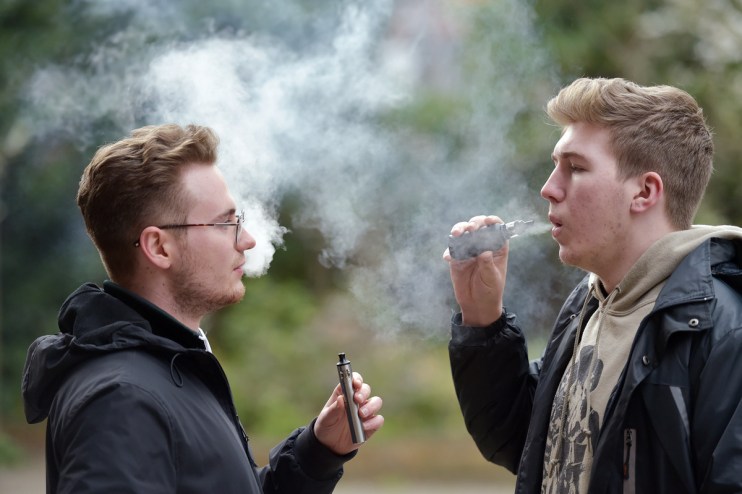The government didn’t want to ban vaping – the industry only has itself to blame

Our government doesn’t like banning things. It’s only by not fulfilling its basic obligations to society that the vaping industry has got itself in this mess, writes Alex Robinson
The government is preparing to ban disposable vapes, ending the extraordinary boom of one of the most pointless and harmful inventions of our age.
The huge rise in teenage vaping is thought to have driven the decision, with the NHS reporting that one in 10 children aged 11-15 regularly uses them. Regulation will also target youth-friendly flavours of vape liquids, such as cotton candy and gummy bear.
The new laws, due to be announced in the next week, will come as a major blow to a new industry that has enjoyed incredible success, but will be left regretting its flagrant flouting of the rules.
The numbers around single-use e-cigarettes are astonishing. According to leading non-profit Material Focus, 7.7m were sold every week in the UK last year – twice as many as in 2022. Brands such as Lost Mary and Elf Bar are a common site on every high street and in every local shop. Their impact on health has been much debated, with e-cigarettes considered by many as an effective pathway for tobacco smokers to kick the habit. What isn’t up for debate is the huge environmental damage done by these colourful throwaway gadgets. Each one is a small electrical device containing valuable materials. Last year UK adults threw away enough lithium in these vapes to power nearly 5,000 electric vehicles.
Recycling of such cheap, small devices has never been economically feasible. Advice to take these £5 devices to household recycling centres was wishful thinking at best, tokenistic at worst.
And you know what happens instead: they end up in the regular waste bin or littered on the ground. 73 per cent of users say they chuck single-use vapes in the bin (a further one per cent even admit to flushing them down the toilet). That’s not only a vast waste of resources but also a hazard. The batteries are liable to catch fire in waste trucks and at recycling centres. This has created both health risks and rising costs for the businesses involved as they face rising insurance premiums and new capital costs. Waste management company Grundon reported investing £250,000 in fire detection equipment at each of its sites last year. Vapes aren’t the only items with batteries in of course, but they’re the worst offender.
Our government, as a rule, doesn’t like banning things. It’s only by so obviously targeting teenagers and not fulfilling its basic obligations to society that the industry has got itself in this mess.
The vape industry will surely be ruing its irresponsible approach to all this. The Environment Agency made it clear last year that vapes must be recycled, not incinerated. Producers and distributors are legally responsible for financing take-back schemes for recycling. Retailers are on the hook for taking back old vapes, and publicising the fact to their customers. The Department for Business and Trade and Material Focus offered guidance for how to communicate take-back and recycling to customers. But it hasn’t happened at anything like an appropriate scale, while the industry made rogue claims about its progress.
By my count, the Advertising Standards Authority upheld over 20 complaints against vape companies last year. Most notable was their judgement on an Elf Bar campaign claiming it was “Recycling for a greener future”, which ran on London billboards and buses last summer. The ASA’s damning verdict noted dryly that the ads were touting an environmental benefit to their product that was in fact “a legal obligation.” In other words, they were boasting about doing the bare minimum. Our government, as a rule, doesn’t like banning things. It’s only by so obviously targeting teenagers and not fulfilling its basic obligations to society that the industry has got itself in this mess.
Earlier this week, Deloitte and Circle Economy Foundation released a report showing that while conversation about a circular economy has tripled in the last five years, on a global scale we continue to use more virgin resources every year. Vapes could be the poster child for this gap between what we say and what we do. Reusable, refillable vapes were around for years before the cheap single-use ones came along. Disposable vapes have been a hugely wasteful and damaging step backwards. The ban can’t come soon enough.
Alex Robinson, CEO, Hubbub